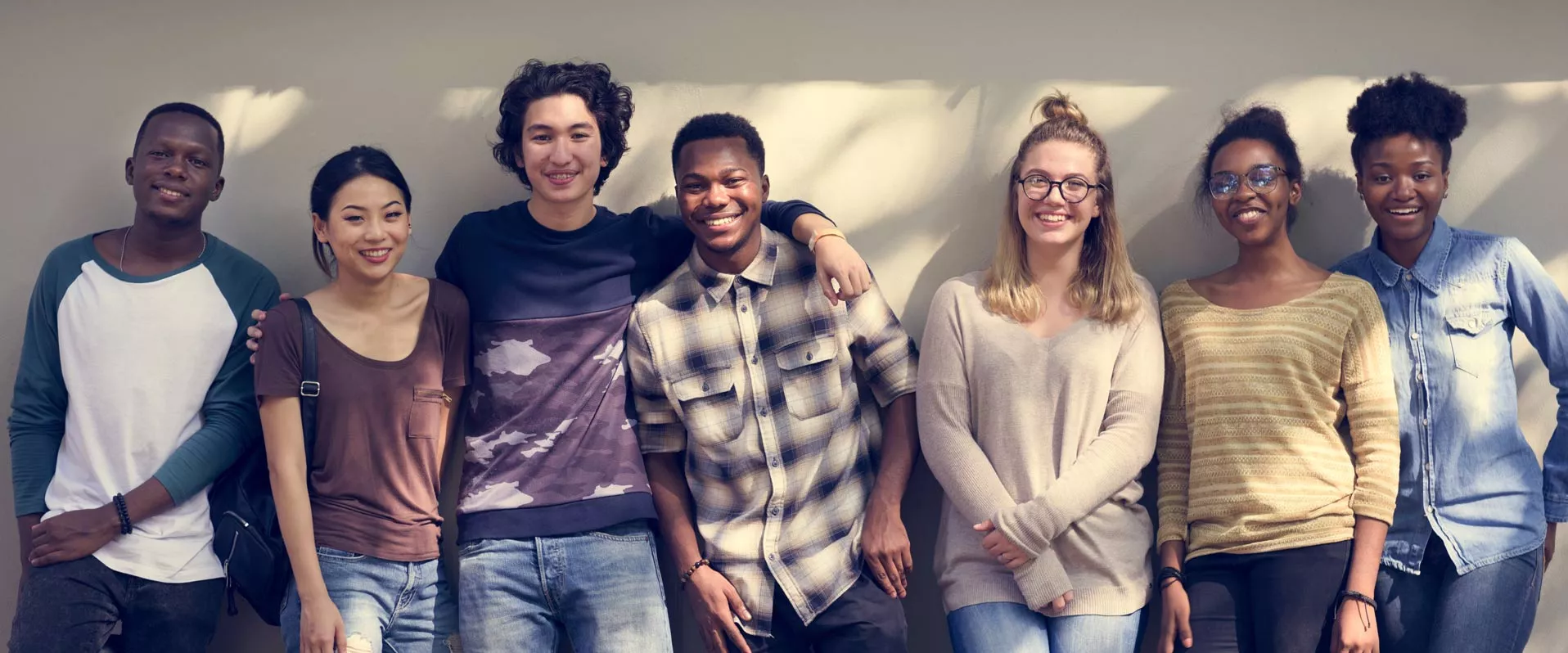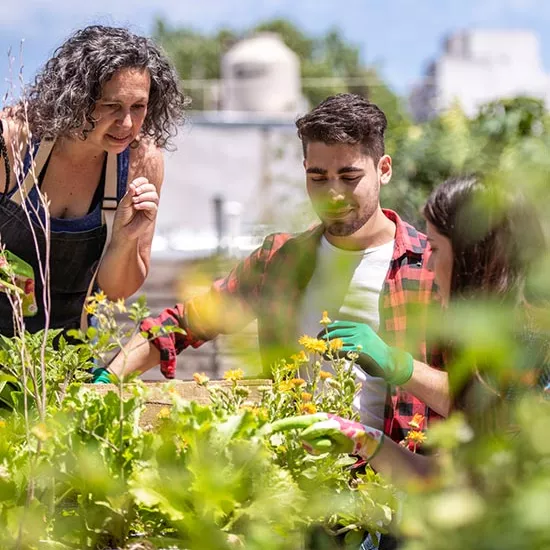
Our focus areas and lines of attack
Find out how SNCF Group Foundation helps young people find their place in society and support the green transition.
Committed to serving the public interest
SNCF Group Foundation translates SNCF Group’s commitments into action. By partnering with various non-profits, from national to local organizations, we help young people build a more inclusive society that cares for its most vulnerable and the environment. A society where everyone can envision an ambitious, sustainable future together.
Our lines of attack
- Rather than issue calls for proposals, we identify the non-profits ourselves and meet with them directly
- We invite the young “beneficiaries” of our programmes to join in our governance
- We engage in lasting partnerships (3 to 5 years)
- We make sure our sponsorship is not entirely focused on Paris-based projects and that part of our funding goes to initiatives in the French regions
- We offer our partner non-profits the benefits of support from SNCF employees through our skills-sharing programme
- We foster connections amongst our partners to increase the effectiveness and reach of our patronage across France’s regions
- We encourage donors to join forces to help new, innovative projects get off the ground
Helping young people find their place in society
In response to the twin crises threatening our economy and our climate, most of our non-profit partnerships and the bulk of our €4.5 million annual budget are dedicated to helping the most vulnerable young people find their place in society.

We’ve chosen
2
focus areas to help young people

We allocate
€4.5 million
a year to these initiatives and partnerships

We supported
594
non-profit projects in 2024
Map of our projects in France
Want to know which projects the SNCF Group Foundation supports?

The heart of our mission
SNCF Group Foundation helps the most vulnerable teens and young adults (ages 11-25). The second emergency we face is preserving our planet—a major concern for young people.
Our two focus areas: “Building a life—at work and in my community” and “Working for the environment” offer hands-on solutions to these crucial issues. Through its actions, SNCF Group Foundation strengthens the social fabric and encourages young people to support the green transition in their communities.
Building a life
After 10 years backing education initiatives, we have three goals.

Support young people throughout their schooling
We aim to reduce the risk of school dropout through sponsorship and by helping students identify their talents, gain confidence, and develop their potential. Another priority is to give young people access to digital technology from their first years of secondary school, especially when they don’t have devices at home.
Help young people choose a career path
We aim to help young people explore their career options and encourage them to consider future industries like digital tech and the environment. We help them create a career plan, build a network, write their CV and cover letter, and acquire digital skills.
Nurture good citizenship
We want to help young people enter the workforce and focus their skills on projects that foster openness to others, social cohesion, respect for the values of the French Republic, and enrichment through diversity.
Working for the environment
We support young people who want to work for the environment by backing local projects that deliver tangible results and revitalize their communities.

A brand-new focus area
We work with kids as young as 11 who want a better understanding of the environment and environmental issues, but we’ll also target adults up to age 30. Many people in that cohort are brimming with ideas for their local environment but need a leg up to get their projects going.
Three priorities
Our efforts are organized around three priorities:
- support environmental education
- promote the circular economy
- back local environmental projects
Age-appropriate projects
Depending on their ages, SNCF Group Foundation may focus on raising awareness of the need to protect the environment or consume more sustainably.
Nature, waste, and the environment
- Nurturing nature by planting trees, creating kitchen gardens, and expanding organic urban farming.
- Fighting waste by supporting initiatives for recovering materials, recycling, repairing or reusing digital devices and other objects, bartering, and composting
- Protecting the environment by fostering civic responsibility, for example by collecting bottles, or organizing clean-up and litter-picking campaigns on beaches, along rivers, in urban environments and more
Share the article